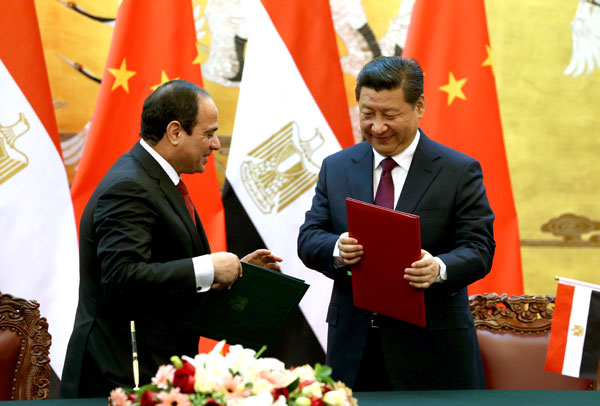Xi's visit raises high hopes in Egypt
Updated: 2016-01-17 12:49
By Li Lianxing(China Daily Africa)
|
||||||||
China has become the top user of the Suez Canal, and the expansion is just the beginning of combining China's Belt and Road Initiative and Egypt's industrialization, according to Amir.
"More international players including China will benefit from this expansion project, which means more projects, industrialization, and more transition of goods are ready to begin," he adds.
China has a chance to make the best use of Egypt's geographical advantage at the center of many important markets, he says. For example, using the TEDA economic zone, Egypt could be an ideal manufacturing region for goods destined for Europe and other areas.
"There is a factory producing fiberglass in the zone, and the products are not only consumed in Egypt, but also exported to European, northern African and Middle Eastern markets," Amir says. "That's why we will have the Suez Canal region focus on building shipping, services to ships, and areas of transit of international goods, to make the best use of its geographic advantages."
He also stresses that Egypt's multiple memberships in international organizations can be an irreplaceable edge for manufacturers because they can provide favorable taxation treatment to producers in Egypt.
Due to Egypt's membership in the Common Market for Eastern and Southern Africa, he says, "products from Egypt enjoy zero tax in other member countries, and this also applies to Jordan, Morocco, Tunisia". Egypt also has similar tax arrangements with other pan-Arabic and European countries.
"It benefits any country producing products in Egypt, and naturally it gives Chinese companies an edge," Amir says.
In this process, Egypt expects more skills, technologies, finance and investment from China. Also, joint ventures are encouraged when direct investment is needed.
"China has a strong edge in the railway industry, and we are expecting to cooperate with them to produce trains in Egypt and develop the industry," he says.
In regard to the security situation, he says the whole area has been in trouble during the past few years and Egypt has not been isolated from that, but the situation is much better in economic and security terms compared with 2011.
Amir says Egypt also hopes to leverage its dual membership in the Forum on China-Africa Cooperation and the China-Arab States Expo as an advantage to work with China more closely. The expo is a global event backed by Beijing that was held in September in China, in Yinchuan, Ningxia Hui autonomous region.
"FOCAC has been successful, and we understand that FOCAC is not to foster Chinese presence in Africa, but to help Africa better develop. Thus there is enough space for us to carry out concrete actions in fields like technology transfers and agricultural administration."
Amir also says to deepen cooperation, cultural exchanges such as language learning are key. Amir says the learning of Mandarin is a trend that Egypt hopes to encourage.
"Thanks to the Chinese side, Egypt has two Confucius institutes, which are running quite well. And there are 15 Chinese language departments in different Egyptian universities," he says. "For higher studies, at least 300 scholarships for language studies each year are offered to Egyptian students. There are even young people coming to China on their own."
Amir also says there are hundreds of Chinese students who go to Egypt each year to learn Arabic, a trend that he says can be traced back to 1930.
More people-to-people contact and communication is expected to be generated by Xi's visit, enhancing mutual understanding, he adds.
lilianxing@chinadaily.com.cn
- Tennessee couple first to claim Powerball jackpot
- Kerry to visit China in late January
- Getting to know the New Normal
- Massive dinosaur skeleton will spill out of hall at NY museum
- Pakistan confirms detention of top suspect of Indian airbase attack
- US sailors made 'navigational error' into Iranian waters

 The world in photos: Jan 11 - 17
The world in photos: Jan 11 - 17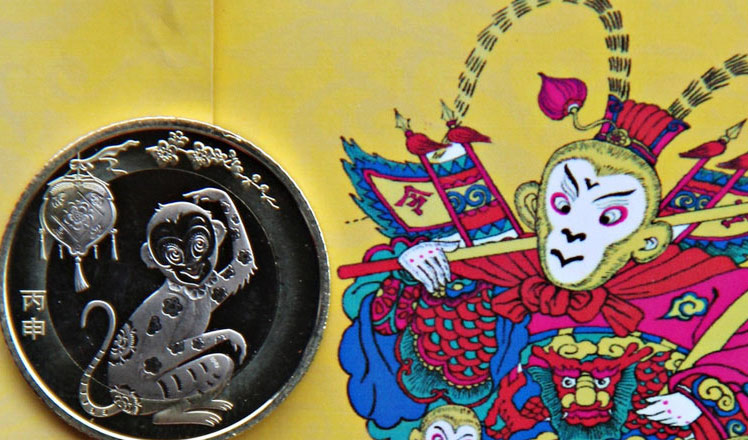
 Commemorative coins for Year of Monkey issued across China
Commemorative coins for Year of Monkey issued across China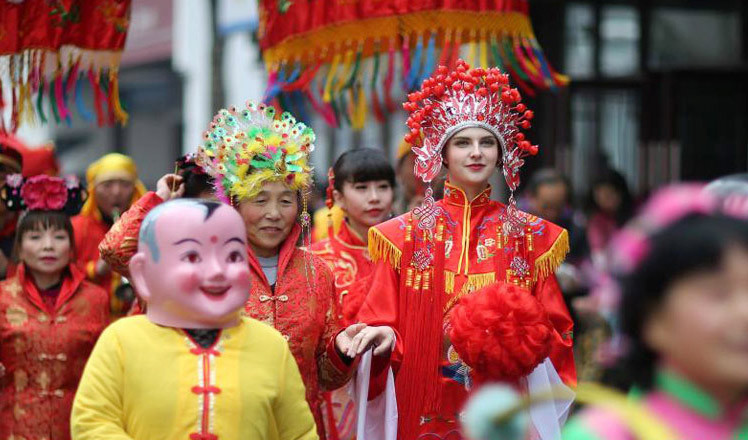
 Throw a flower ball to find Mr Right
Throw a flower ball to find Mr Right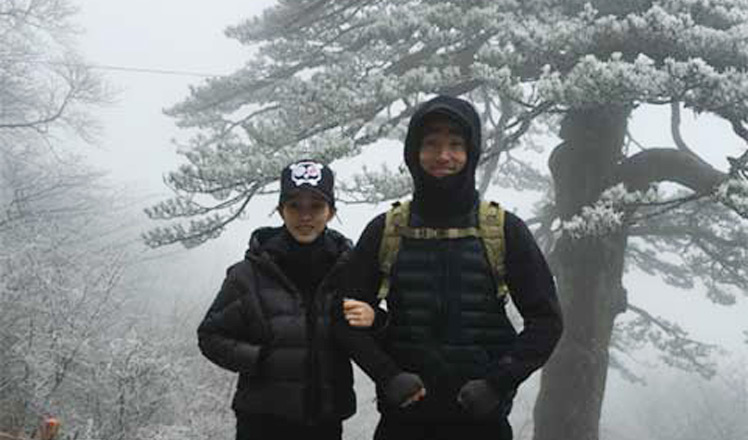
 Retired hurdler Liu Xiang shows affection with new love
Retired hurdler Liu Xiang shows affection with new love
 Visitors enjoy free Laba porridge at Yonghe Lama Temple
Visitors enjoy free Laba porridge at Yonghe Lama Temple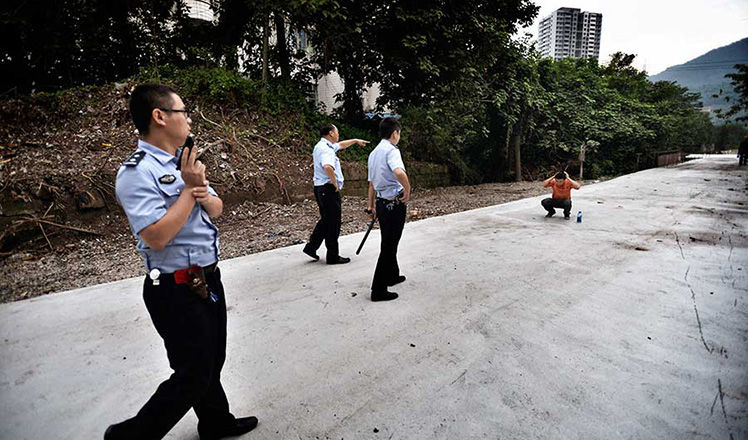
 For police officers, duty is all in a day's work
For police officers, duty is all in a day's work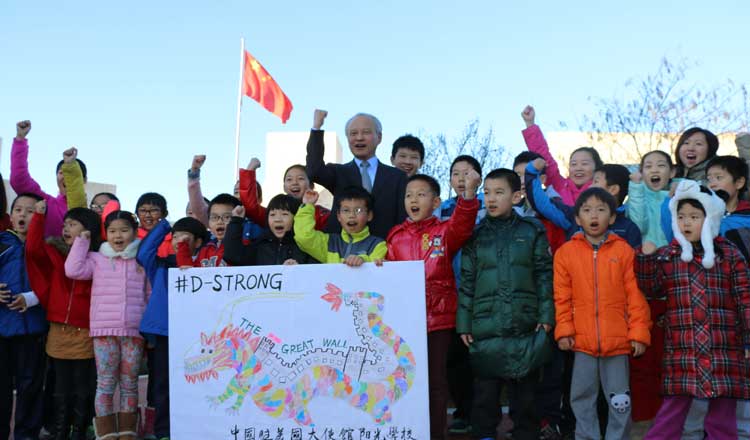
 Children at Chinese embassy in US send wishes to Dorian
Children at Chinese embassy in US send wishes to Dorian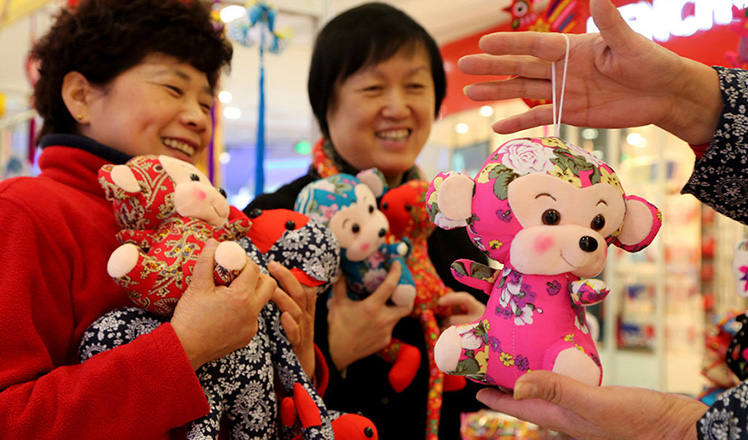
 People prepare for Chinese New Year
People prepare for Chinese New Year
Most Viewed
Editor's Picks

|

|

|

|

|

|
Today's Top News
National Art Museum showing 400 puppets in new exhibition
Finest Chinese porcelains expected to fetch over $28 million
Monkey portraits by Chinese ink painting masters
Beijing's movie fans in for new experience
Obama to deliver final State of the Union speech
Shooting rampage at US social services agency leaves 14 dead
Chinese bargain hunters are changing the retail game
Chinese president arrives in Turkey for G20 summit
US Weekly

|

|
